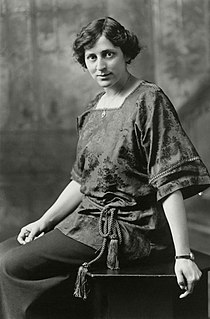A Quote by James Russell Lowell
[B]ut in literature, it should be remembered, a thing always becomes his at last who says it best, and thus makes it his own.
Related Quotes
A distinguished man should be as particular about his last words as he is about his last breath. He should write them out on a slip of paper and take the judgment of his friends on them. He should never leave such a thing to the last hour of his life, and trust to an intellectual spurt at the last moment to enable him to say something smart with his latest gasp and launch into eternity with grandeur.
At one year of age the child says his first intentional wordhis babbling has a purpose, and this intention is a proof of conscious intelligenceHe becomes ever more aware that language refers to his surroundings, and his wish to master it consciously becomes also greater.Subconsciously and unaided, he strains himself to learn, and this effort makes his success all the more astonishing.
What happens if you are the last (the very, very last) of your species, and you die - and humans notice? We live, increasingly, at a time when extinctions are recorded, remembered, and the last animal (or plant) in its line, by virtue of its being last, becomes a kind of celebrity. Its finality becomes a thing to honor.
The number one thing I've heard Trump supporters say - number one thing - 'I love him because he says what's on his mind. He just says what's on his mind.' He just says what's on his mind. You go, 'What are your thoughts on his policies?' 'I don't know about his policies. He just says what's on his mind.'
He was afraid that the secrets she'd kept would always be here, inside him, an ugly malignant thing lodged near enough to his heart to upset its rhythm, and though it could be removed, cut out, there would always be scars; bits and pieces of it would remain in his blood, making it wrong somehow, so that if he accidentally sliced his skin open, his blood would--for one heartbeat--flow as black as India ink before it remembered that it should be red.
In the absence of government each man learns to think, to act for himself, without counting on the support of an outside force which, however vigilant one supposes it to be, can never answer all social needs. Man, thus accustomed to seek his well-being only through his own efforts, raises himself in his own opinion as he does in the opinion of others; his soul becomes larger and stronger at the same time.
This sutra enjoins a rule of morality. It says nobody should be disrespected. A man can impress evdrybnody by his virtues. Disrespecting others means downfall of our own virtues. A person who disrespects others, in a way disrespect himself. A virtuous man does not disrespect his friend or vevn his enemy. Disrespect to enemy can investigate him toreact. The best thing is to destroy him completely. For a ruler this is very important.





































